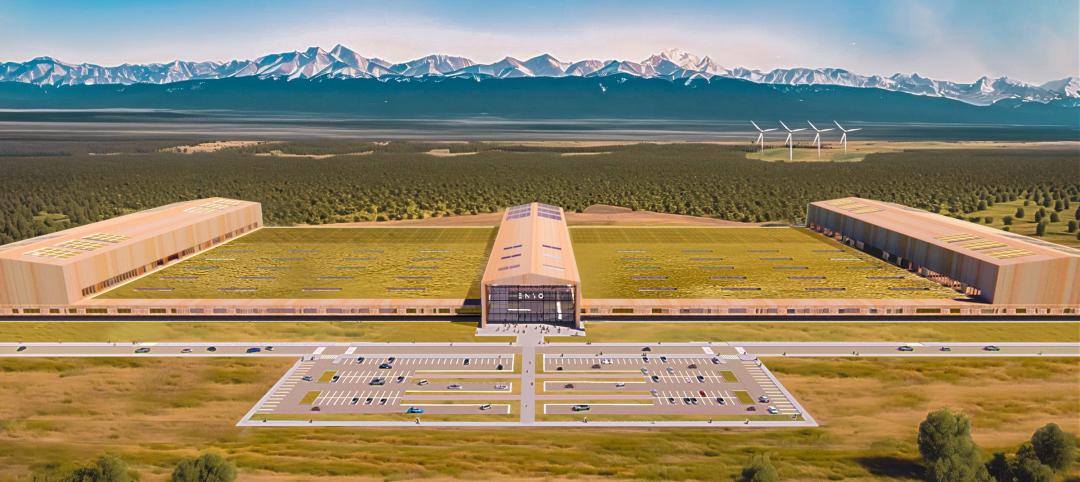According to a new recently released survey from the U.S. Green Building Council (USGBC), employees who work in LEED-certified green buildings are happier, healthier, and more productive than employees in conventional and non-LEED buildings. The survey also shows that a majority of office workers want to work for companies that are value-oriented, take stances on important issues like sustainability, and do their part for making a positive difference in the world. In fact, 84% of respondents prefer to work for a company that has a strong, concrete mission and positive values.
When it comes to choosing a new job, findings show that people’s decisions were influenced by whether or not the workplace was in a LEED-certified building. More than 90% of respondents in LEED-certified green buildings say they are satisfied on the job and 79% say they would choose a job in a LEED-certified building over a non-LEED building.
“We discovered that today’s employees are more motivated than ever to work for a company that promotes not just a higher standard of living for its employees, but also of its community,” said Mahesh Ramanujam, president and CEO, USGBC. “In today’s highly competitive job market, if companies want to attract and retain highly-skilled, talented employees, they must demonstrate a commitment to environmental, human, and economic sustainability.”
LEED buildings are linked to improved productivity, health, and wellness, and the survey showed that these attributes, as well as a space that provides clean and high-quality indoor air, directly contribute to employees feeling happy and fulfilled at work. More than 80% of respondents say that being productive on the job and having access to clean, high-quality indoor air contributes to their overall workplace happiness.
In addition, 85% of employees in LEED-certified buildings also say their access to quality outdoor views and natural sunlight boosts their overall productivity and happiness, and 80% say the enhanced air quality improves their physical health and comfort.
The survey, conducted by Porter Novelli on behalf of USGBC, included 1,001 workers in the U.S. who are employed full-time or part-time, or self-employed but work in an office building setting.
Related Stories
Sustainable Design and Construction | Oct 10, 2024
Northglenn, a Denver suburb, opens a net zero, all-electric city hall with a mass timber structure
Northglenn, Colo., a Denver suburb, has opened the new Northglenn City Hall—a net zero, fully electric building with a mass timber structure. The 32,600-sf, $33.7 million building houses 60 city staffers. Designed by Anderson Mason Dale Architects, Northglenn City Hall is set to become the first municipal building in Colorado, and one of the first in the country, to achieve the Core certification: a green building rating system overseen by the International Living Future Institute.
Office Buildings | Sep 6, 2024
Fact sheet outlines benefits, challenges of thermal energy storage for commercial buildings
A U.S. Dept. of Energy document discusses the benefits and challenges of thermal energy storage for commercial buildings. The document explains how the various types of thermal energy storage technologies work, where their installation is most beneficial, and some practical considerations around installations.
Industrial Facilities | Aug 28, 2024
UK-based tire company plans to build the first carbon-neutral tire factory in the U.S.
ENSO, a U.K.-based company that makes tires for electric vehicles, has announced plans to build the first carbon-neutral tire factory in the U.S. The $500 million ENSO technology campus will be powered entirely by renewable energy. The first-of-its-kind tire factory aims to be carbon neutral without purchased offsets, using carbon-neutral raw materials and building materials.
Government Buildings | Aug 19, 2024
GSA posts new RFI for enabling energy efficiency, decarbonization in commercial buildings
The U.S. General Services Administration (GSA), in collaboration with the U.S. Department of Energy, recently released a new Request For Information (RFI) focused on enabling energy efficiency and decarbonization in commercial buildings. GSA wants to test innovative technologies through GSA’s Center for Emerging Building Technologies.
Adaptive Reuse | Aug 14, 2024
KPF unveils design for repositioning of Norman Foster’s 8 Canada Square tower in London
8 Canada Square, a Norman Foster-designed office building that’s currently the global headquarters of HSBC Holdings, will have large sections of its façade removed to create landscaped terraces. The project, designed by KPF, will be the world’s largest transformation of an office tower into a sustainable mixed-use building.
Sustainability | Aug 14, 2024
World’s first TRUE Zero Waste for Construction-certified public project delivered in Calif.
The Contra Costa County Administration Building in Martinez, Calif., is the world’s first public project to achieve the zero-waste-focused TRUE Gold certification for construction. The TRUE Certification for Construction program, administered by Green Business Certification Inc. (GBCI), recognizes projects that achieve exceptional levels of waste reduction, reuse, and recycling.
Energy Efficiency | Aug 9, 2024
Artificial intelligence could help reduce energy consumption by as much as 40% by 2050
Artificial intelligence could help U.S. buildings to significantly reduce energy consumption and carbon emissions, according to a paper by researchers at the Lawrence Berkeley National Laboratory.
Green | Aug 7, 2024
Major cities worldwide set building performance standards
Cities around the world are setting building performance standards (BPS) as a key measure to cut emissions and meet climate targets, according to a report from JLL.
Smart Buildings | Jul 25, 2024
A Swiss startup devises an intelligent photovoltaic façade that tracks and moves with the sun
Zurich Soft Robotics says Solskin can reduce building energy consumption by up to 80% while producing up to 40% more electricity than comparable façade systems.
Sustainability | Jul 18, 2024
Grimshaw launches free online tool to help accelerate decarbonization of buildings
Minoro, an online platform to help accelerate the decarbonization of buildings, was recently launched by architecture firm Grimshaw, in collaboration with more than 20 supporting organizations including World Business Council for Sustainable Development (WBCSD), RIBA, Architecture 2030, the World Green Building Council (WorldGBC) and several national Green Building Councils from across the globe.

















